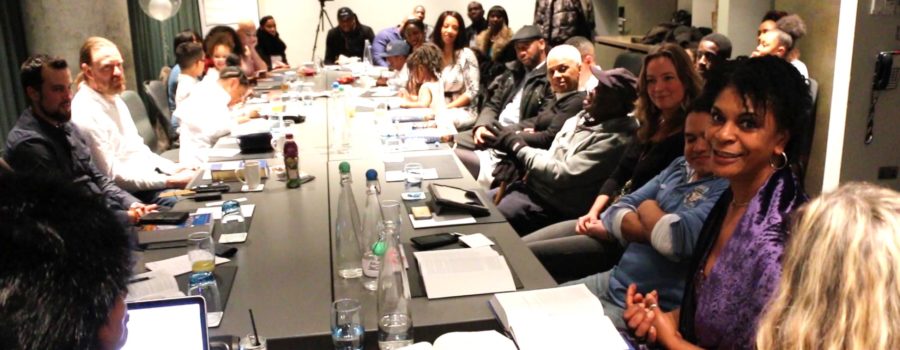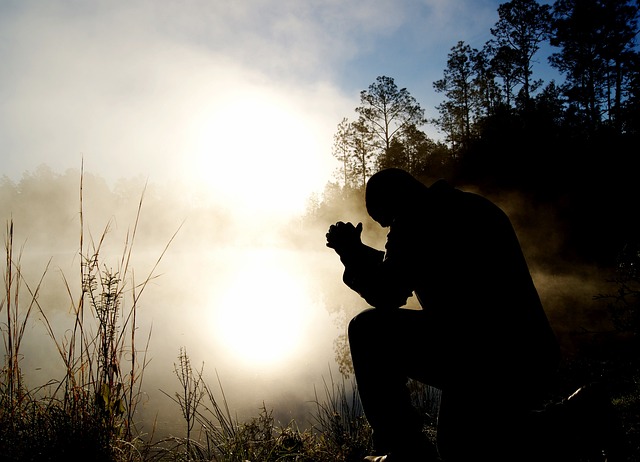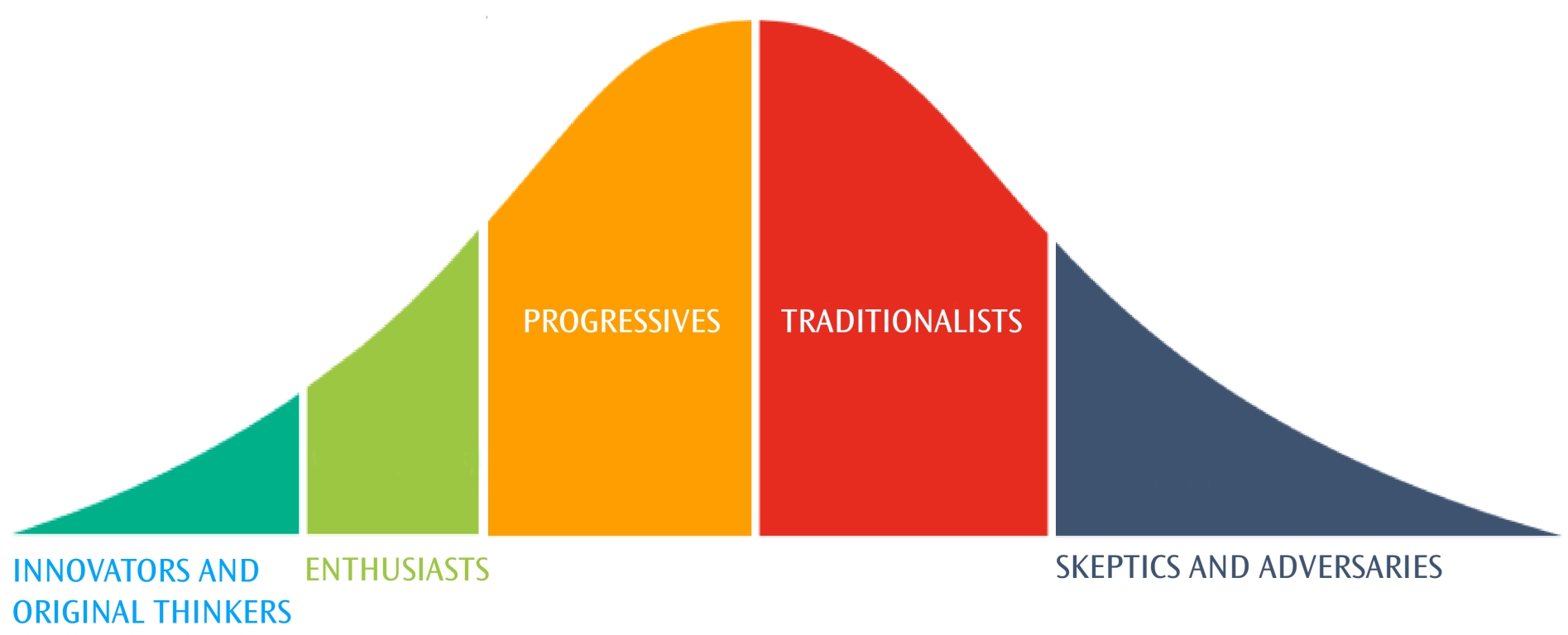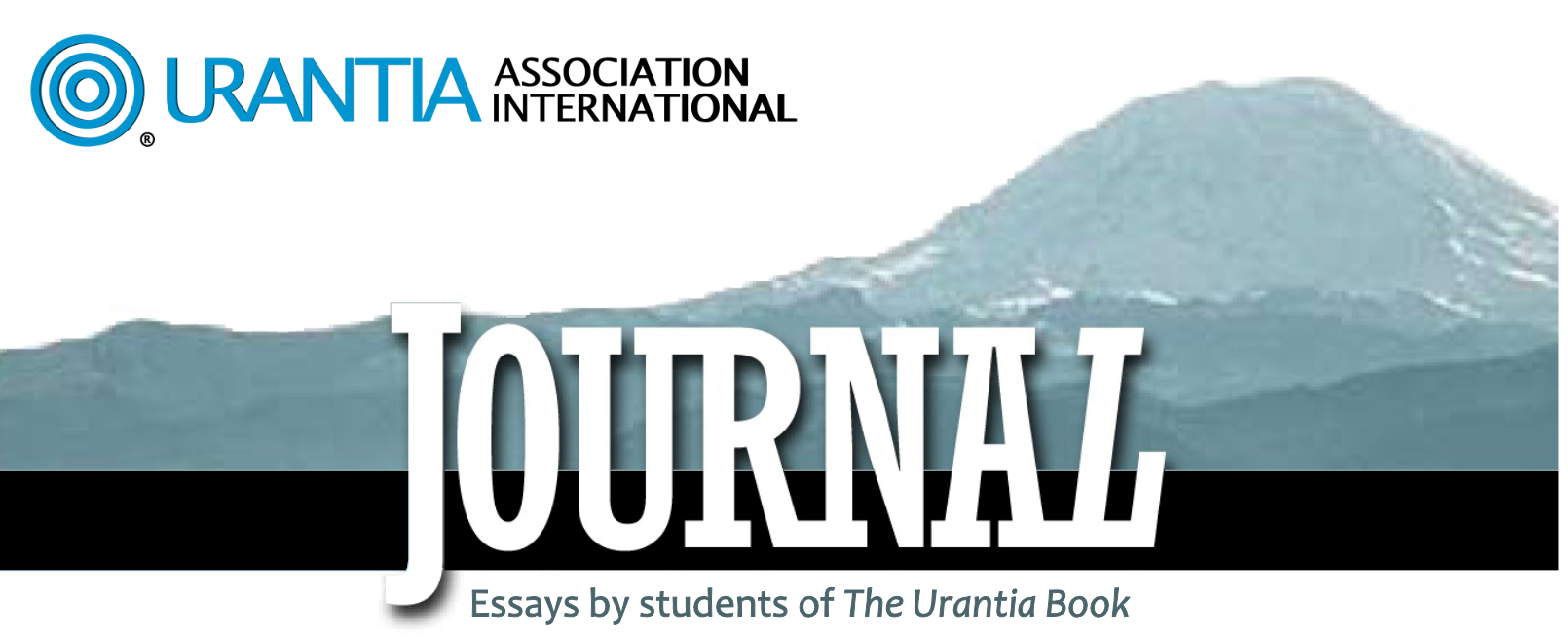Journal – November 2023
 | | 12019 on Pixabay |
Printable PDF Version
|
In This Issue
|
|
Mark Blackham  Welcome to the November 2023 edition of the Urantia Association's Journal, a publication dedicated to the thoughts, observations, and experiences of Urantia Book students from around the world. Our contributors explore a wide range of topics related to the teachings of the book, all of which demonstrate an extraordinary diversity of thought and a spirited unity of purpose.
Welcome to the November 2023 edition of the Urantia Association's Journal, a publication dedicated to the thoughts, observations, and experiences of Urantia Book students from around the world. Our contributors explore a wide range of topics related to the teachings of the book, all of which demonstrate an extraordinary diversity of thought and a spirited unity of purpose.
Our first article, “Urantia – Is It a New Religion?” by Peep Sõber brings up a question often asked by Urantia Book students and others. Peep recognizes there is an air of subjectivity to this question, depending on the individual and their experiences. Nonetheless, he drives home the point that both The Publication Mandate and The Urantia Book itself, promote a new religion, in particular, the religion of Jesus. But changing religion is not about forming a new church with a rigid set of beliefs, various clergy, or a claim to ecclesiastical authority.
Our second article is “Spiritual Practices – an Invitation to Intimacy with God” by Robert Coenraads. Robert suggests that most people do not want their beliefs to be limited to any particular creed and that the personal religious experience advocated in The Urantia Book, with its open-minded and intimate approach, is the best way to engage in meditative exercises. Robert points out that Eastern religions offer a very practical set of meditation practices and ideas that are useful to Urantia Book students. He compares these to some Judeo-Christian rituals and practices before delving into an exploration of the techniques suggested in The Urantia Book, namely meditation, prayer, and worship.
In the next article, Phillip Marriott addresses “Unity – Harmony Within Diversity of Experience and Belief.” More specifically, he looks at ways to encourage spirit unity among all believers. Phillip tells us of his encounter with an argumentative individual as a means to address solutions. Rather than taking a defensive stance with our beliefs, Phillip encourages us to look at the way Jesus approached differences of opinion, such as working through common ground and by embellishing the truth in others’ beliefs. The spirit unity of Jesus is best summed by the statement that “The unity of religious experience… derives from the identical nature of the God fragment indwelling the individual.” But as Phillip says, “it’s only going to work in an environment of co-operation in which there is a willingness to have peace and harmony.”
Our fourth article is “Urantia's Unrevealed Destiny” by Neal Waldrop, who tackles the need for progressive changes in Urantia civilization and suggests methods by which these changes could be implemented. The revelators tell us that “Urantia society can never hope to settle down as in past ages,” and that it will, in fact, take a millennium for this to occur. This change, however, will require the religion of Jesus as a forceful and stabilizing influence.
Neal points out that Jesus, the Melchizedeks, and the angels are all concerned with the progressive growth of civilization on Urantia and suggest several ways it could be improved. His project, “The Global Endeavor” is intended to address ways to improve society. As a working model, he advocates using the organizational structure of the master seraphim of planetary supervision, thereby dividing our activities into twelve groups, each of which addresses ways to improve particular areas of social life. As to how these groups will function and succeed, much depends on the insights given by Jesus, particularly while on his Mediterranean tour and during his caravan trip to Urmia. Neal contends that enacting these changes will require innovators and original thinkers who can actually change the rules of society.
Our final article, “Our World Is Made of Force Fields” by Antti Roine, diverges from the spiritual and social themes of the preceding articles by taking a turn to the material realm. Antti suggests that much of the physical world around us is permeated with empty space, as is the entire universe. But within this “empty” space there are a number of force fields that have different effects on matter. Antti posits that science knows little about either the nature of matter or the force fields acting within it, and that much of accepted science is a belief system in itself. Based on the teachings of The Urantia Book, Antti reminds us that, “From the perspective of philosophical idealism, reality is ultimately spiritual in nature, and the materialistic world is only a shadow of the spiritual world.”
|
|
Peep Sõber, Estonia  | | Photo by Ri Ya |
A few years ago, in a census held in Estonia, about 30 people indicated Urantia as their religion. I have never called the Urantia teachings a religion, even though they are religious in content. Some consider it an organized religion. But do we have such a religion?
Religion can be viewed both from the inside with some preconceptions about everything that follows, and it can also be viewed from the outside without special preconceptions. I don’t try to find supporters for any point of view. These are just my personal views from the outside today. Maybe tomorrow I'll think a little differently, that's natural because we all evolve and therefore change. No doubt, I have internal views as well, but they are not very important in this case. Therefore, I deliberately leave them aside.
The book reveals:
The true perspective of any reality problem—human or divine, terrestrial or cosmic—can be had only by the full and unprejudiced study and correlation of three phases of universe reality: origin, history, and destiny. 19:1.6 (215.3)
I use this method to understand the present Urantia movement, especially its connection with religion. First, let’s consider how Christianity became a new and powerful religion:
Christianity came not merely as a new religion—something all the Roman Empire and all the Orient were waiting for—but as a new order of human society. And as such a pretension it quickly precipitated the social-moral clash of the ages. The ideals of Jesus, as they were reinterpreted by Greek philosophy and socialized in Christianity, now boldly challenged the traditions of the human race embodied in the ethics, morality, and religions of Western civilization. 195:0.3 (2069.3)
The word “religion” itself has a Latin origin, where it meant respect for what is sacred, reverence for the gods, or moral obligations, among other definitions (Online Etymological Dictionary). But The Urantia Book authors use the word with different meanings. Followers of Eastern religions don’t use the word so much. For instance, some say that Buddhism is not a religion at all, it’s a way of living. It all depends on what we mean by “religion.” I try to use the word as it is used in The Urantia Book and as generally used in the West.
William S. Sadler mentioned:
We were enjoined to refrain from discussing the identity of the contact personality and after the publication of the book, to make no statement at any time as to whether the ‘subject’ was still living or was deceased. … Our troubles will be greatly lessened if we avoid all discussion of the origin of the book. We should be determined to know but one thing – the soul-surviving message of the book. (The Plan for The Urantia Book Revelation by Carolyn B. Kendall – member of Forum 1951-1956, wife of Thomas A. Kendall, Urantia Foundation president 1973-1983.) 1
Consequently, I don’t discuss the identity of this individual. I am only looking at the Urantia movement that arose after the book was published and its connection to religion.
We know that in April 1955, William S. Sadler, Jr. presented The Timing of The Urantia Book, which was later known as The Publication Mandate.
You will doubtless live and die without fully realizing that you are participating in the birth of a new age of religion on this world.
You must again study the times of Jesus on earth. You must carefully take note of how the kingdom of heaven was inaugurated in the world. Did it evolve slowly and unfold naturally? Or did it come with sudden show of force and with spectacular exhibition of power? Was it evolutionary or revolutionary?
You must learn to possess your souls in patience. You are in association with a revelation of truth, which is a part of the natural evolution of religion on this world. Over rapid growth would be suicidal. The book is being given to those who are ready for it long before the day of its worldwide mission. Thousands of study groups must be brought into existence and the book must be translated into many tongues. Thus will the book be in readiness when the battle for man’s liberty is finally won and the world is once more made safe for the religion of Jesus and the freedom of mankind.

When I first read The Publication Mandate, these words were authoritative. The book influenced the birth of a new age of religion. But is our world safe now? Not at all! We have had several years of war in Europe, and we don’t see the end in the near future. The leader of our neighboring country (Russia) has an arrest warrant issued against him by an international court because he and many others have been charged with war crimes. This has not happened before during the long history of Europe. Is such a system sustainable where we have war crimes, occupation and so on? First, we should not be naive peace seekers. True peace can only come with spiritual achievement, which is when people no longer want to establish themselves in a violent way. However, our civilization still has a long way to go.
A lasting social system without a morality predicated on spiritual realities can no more be maintained than could the solar system without gravity. 195:5.9 (2075.12)
I lived most of my life in the Soviet Union, and I cannot say that there were any spiritual realities in that system. Most of us knew that this wouldn't last long and we were right. If you look at the world today, especially Europe, such violent adventures (aggressions) have little hope of succeeding. As already stated in the Book of Daniel and mentioned also in The Urantia Book, the Most Highs rule in the kingdoms of men.
The Urantia Book is a book about religion, it’s not a science book. But what kind of religion can arise from the book? Part IV represents the religion of Jesus, but it’s not in connection with any Christian view or organized Christianity. But that does not mean that Urantia Book readers cannot be Christians.
According to the former forum member, Carolyne B. Kendall, there were several such instructions for starting the Urantia movement, but they were not included in the book. She wrote:
The original messages, which outlined the plan, were not published as part of the revelation and would eventually be destroyed. The former Forum members who became Brotherhood leaders and Foundation trustees carried on knowledge of how the revelation was to progress.
The plan was never presented as a 1-2-3 listing of do’s and don’ts. If one is discerning, facets of the plan will emerge, just as they dawned upon each Forum member and Brotherhood leader. As was true in past revelations, in the realm of revelatory planning, timing is everything.2
Why were these original instructions ignored? Perhaps it was wise to have no proof of this and thereby limit our human choices, or perhaps these organizations must grow under their leadership’s own wisdom. I suggest that the authors of the book influenced the Urantia movement in the beginning but later on wished to see it from a distance. There is also one more reason. “It was the design of our unseen friends to prevent the appearance of an ‘Urantia Apocrypha’ subsequent to the publication of The Urantia Book.”
Later on we read:
It was inevitable some sort of fraternal organization would grow out of the teachings of The Urantia Book. All interested persons could see that the Urantia teachings were opposed to the sectarianism of Christian believers. It was clear that it was not the purpose of the Urantia Revelation to start a new church. (William S. Sadler, M.D., contact commissioner. History of the Urantia Movement, ca. 1966.) 3
A new church is an interesting idea. Why not have some kind of church? We haven’t done that in any country as far as I know. I think it was a wise decision not to have a church for the Urantia Movement. First of all, it would be one church or sect among many others. Second, a certain clergy would inevitably arise to perform religious ceremonies and establish their spiritual authority. Of course, this would be an opportunity for charismatic preachers to emerge, and several papers speak of such dangers. We can read from Bill Sadler's Triennial Report, January 20, 1958: "There are three main differences between the Brotherhood and a typical church: we claim no spiritual sovereignty; we claim no exclusive path to salvation; we claim no ecclesiastical authority. So long as we do not claim any of these things, we can hardly become a church."4 And there are more negative consequences with organized religion, as we can glean from the book.
Organizations are necessary to organize readers' activities, such as the support of study groups, the organization of seminars and conferences, as well as the maintenance of websites. But study groups are autonomous in the Urantia movement, they are not part of reader’s organizations, that is, they do not belong to the hierarchical structure of the organization. But are these organizations religious? They are social types of organizations and that is how it has been with the Urantia Association International so far. In my opinion, social organizations provide more freedom for interpretations of The Urantia Book. If we have religious organizations, then we have to believe in something. Therefore, there is a need for creeds and members will have fixed religious concepts.
What does religion look like from a theological viewpoint? The Urantia movement can be seen as religious in nature, although it has not formed a church. As I understand it, it is considered by theologians to be a new type of religion. Their understanding is that spiritual movements are also religious.
On March 7, 1955, William S. Sadler. Jr. distributed a memo addressed to the Executive Committee of Urantia Brotherhood, with copies placed in each committee secretary’s notebook. Again, the paper was adapted from written communications and was read to the Forum. It was entitled Some Problems Confronting a New Religious Organization, and opened with:
Create an organization which will organize the least and thereby prevent all other organizations with their tyranny and disgrace and their disrupting influences.... That organization is best that coordinates most while it organizes least. 5
There is always a danger of being too intellectual and less spiritual when it comes to any kind of organization. But a religiosity which is natural and spontaneous is much better than an organized one.
It’s good to compare the Bible and The Urantia Book. Sometimes people ask, why replace the Bible with The Urantia Book? First, we don’t do that. And second, it's fashionable these days to say I'm spiritual, but not religious. The same could be said about the Urantia movement in general.
In conclusion:
The Urantia Book is religious by nature, but the authors’ aim was not to establish a new religion named Urantia. However, if someone wants to see the Urantia movement as a religious one, why not? It’s their own decision.
|
|
Robert Coenraads, AUS
An Experiential Exploration of Relaxation, Meditation, Prayer, and Worship and Its Benefits to Soul, Heart, Mind, and Body
(Transcript of a presentation given at the 2022 Tasmanian Conference)
 All formal religions and individual spiritual pilgrims have at their heart a basic desire to connect or become one with a greater good. It lies somewhere at the core of their belief system, perhaps smothered by a greater or lesser number of ritualistic practices.
All formal religions and individual spiritual pilgrims have at their heart a basic desire to connect or become one with a greater good. It lies somewhere at the core of their belief system, perhaps smothered by a greater or lesser number of ritualistic practices.
Western religions appeal to the intellect and promote desirable moral practices through examples given in the scriptures. Outsiders, and members of the church, often complain that, try as they may, it really doesn’t seem there is anyone listening “up there” as the realities and stresses of day-to-day living become increasingly complex and difficult to manage.
Eastern traditions teach practical techniques for clearing the mind, to be present and aware, and simply to listen. These highly effective techniques have made their way to the West and developed into various forms of meditation that have been scientifically demonstrated to achieve results.
Indian philosophy speaks of everybody being an individual “Self” making up a part of a greater whole. It calls the Self “Atman” and the Supreme Self “Param Atman” of which every individual is a part. This concept is much akin to the Holy Spirit of the Bible or that of the evolving Supreme Being of The Urantia Book. Supreme or Universal is a good name to use, particularly as such a term does not align itself, or show preference for, one religion’s terminology over another, yet embodies the concept that each religion’s preferred name for its own deity also implies universality and supremacy. The fundamental premise is that we are all part of the Supreme and that the Supreme resides within us, and that we all seek permanent and infinite union with this Supreme.
Tools to Enjoy a Religion of Personal Experience
Most religions have volumes of scriptures and collections of secondary writings by their most respected masters, adherents or disciples. But at the very heart of their teachings, is cultivating a relationship of love, respect, or worship for a Universal Supreme who resides within, or permeates and binds, all humanity, as one. However, adherents of traditional religions are usually required to believe their specific scriptures, often to the exclusion of others, and to faithfully follow their creed. Most intelligent individual spiritual seekers find this off-putting, and really desire nothing more than to discover and participate in a religion of personal experience.
 | | Photo by Barbara Jackson |
Blind faith can be hard for some, but a religion based on personal experience goes far beyond that. It is something that is actually felt or experienced within the self. It is based on actual feelings of happiness, joy, or love that are personally experienced when one acts or thinks in a particular way, or interacts with others in a particular way, or, perhaps, interacts with the Universal Supreme in a particular way. It is a relationship in which you don’t have to believe, you simply have to feel and experience it personally. The Universal Supreme is known by many different names, be it Allah, Yahweh, Almighty, God or simply Father, but any thoughtful person knows them to be one and the same, and a religion of personal experience allows direct access to the vast storehouse of love emanating from that Source who, in fact, resides within each of us, waiting to be discovered, tapped, and shared.
Communication with the Universal Supreme is not experienced in the mind, which is the usual space in which we operate on a day-to-day basis, but instead it must be personally felt within the heart and soul. That is why the technique is not so easy to capture at first. It requires a little practice and patience to attain focus; a sense of stillness and equanimity within. The mind must first become stilled and calm; it must be present in your body, it must be there in the room or place where you are, attentive to your needs and not wandering about aimlessly in the past or the future—not thinking about where you were and what you did yesterday, or plotting and planning for things to come. Neither is it worrying about the trials and tribulations of life. Once the mind is calm and still, the heart and soul are free to communicate directly with the Universal Supreme that is found within us and all around us.
Communication is not done via words or thoughts, but by feelings and emotions which, unlike a specific language, are universal and common to everyone. Feelings of joy and bliss and thankfulness can then emanate from the inner self, shooting into the heavens like searchlight beams. Once the feelings and emotions are completely expended, freely given up to the Supreme, there comes a profound and deep silence within. This silence may last for a shorter or longer time, or perhaps only for a brief moment, but it is a moment of communion, complete oneness of the individual Self with the Supreme Self.
Appreciating these ideas is one thing but realizing them requires some discipline and practice each day, morning and evening. Familiar religious practices or social rituals in the company of like-minded souls can help, like comfortable, well-known acquaintances. Such practices could include slipping the shiny well-worn beads of the Rosary between your fingers or the melodic chanting of the Hail Mary, or perhaps the familiar call to prayer in the coolness of the pre-dawn in eager anticipation of the coming day, the rhythmic rocking of the body to the Torahic verses, or the congregational singing of full-voiced hymns of adoration and praise.
 | | Photo by Pexels |
A religion of personal experience, as the name suggests, is an even more intimate experiential relationship. There is a set of established spiritual tools or practices, tried and tested over the millennia of human existence on which countless books have been written, and which I have distilled here for your immediate practical use. From here forward you are asked not to believe what you are reading, but to try for yourself, and feel through experience to determine if such an approach has merit. If you do experience hints of calmness, oneness with all, joy, happiness, or the slightest glimpse of universal understanding, you are invited to continue to practice these techniques on a daily basis. Like exercising your physical body for good health, you must continue to hone and develop your heart and soul’s ability to express themselves—to give and receive freely.
What Are the Spiritual Practices in The Urantia Book?
The Urantia Book describes traditional religion, with its ritual, sacrifice, and outward displays of piety as hollow and empty compared to the religion of personal experience. Instead, The Urantia Book places high importance on spiritual practices described as relaxation, meditation, prayer, or worship.
Although these terms all fall within today’s sphere of meditation and have similar objectives, The Urantia Book specifically defines these terms and places them in a hierarchy from relaxation and meditation, to prayer, reaching a crescendo in worship.
The following quotes from The Urantia Book shed light on the meaning of these terms:
Prayer and its associated worship is a technique of detachment from the daily routine of life, from the monotonous grind of material existence. 144.4.5 (1621.4)
The contact of the mortal mind with its indwelling Adjuster, while often favored by devoted meditation, is more frequently facilitated by wholehearted and loving service in unselfish ministry to one’s fellow creatures. 91.7.1 (1000.2)
Paragraphs 91:7:2 and 125:4.4 suggest that meditation is considered distinct from prayer:
Jesus often took his apostles away by themselves for short periods to engage in meditation and prayer, but for the most part he kept them in service-contact with the multitudes. 91.7.2 (1000.3)
When this, his second day in the temple, was finished, again he went to Bethany for the night. And again he went out in the garden to meditate and pray. It was apparent that his mind was concerned with the contemplation of weighty problems. 125.4.4 (1382.2)
The word, ‘pray’ is used frequently in The Urantia Book, appearing 125 times. It is used in the sense of asking for something, and it is used distinctly from the word ‘worship.’ And ‘prayer’ appears 285 times.
When man learned that prayer could not coerce the gods, then it became more of a petition, favor seeking. But the truest prayer is in reality a communion between man and his Maker. 91.2.3 (996.1)
When the prayer seeks nothing for the one who prays nor anything for his fellows, then such attitudes of the soul tend to the levels of true worship. 91:4.3 (998.1)
…prayer is designed to make man less thinking but more realizing; it is not designed to increase knowledge but rather to expand insight. 143:7.4 (1616.6)
Worship is used 567 times in The Urantia Book. Worship is the highest note in the escalating musical scale of devotional activities beneficial to all individuals—beginning with rest and relaxation, then through reflection and meditation, then prayer, and finally worship, with worship being the ultimate act of devotion to the Father and the “ideal soul rest.”
At all times and during all ages the true worship of any human being—as concerns individual spiritual progress—is recognized by the indwelling spirit as homage rendered to the Father in heaven. 142:3.8 (1598.9)
The distinction between prayer and worship is emphasized on numerous occasions.
…prayer is spiritually sustaining, but worship is divinely creative. 143:7.5 (1616.7)
Prayer is self-reminding—sublime thinking; worship is self-forgetting—superthinking. Worship is effortless attention, true and ideal soul rest, a form of restful spiritual exertion. 143:7.7 (1616.9)
As prayer may be likened to recharging the spiritual batteries of the soul, so worship may be compared to the act of tuning in the soul to catch the universe broadcasts of the infinite spirit of the Universal Father. 144:4.8 (1621.7)
And consider the extraordinary reach of worship over that of simple prayer in the following paragraph in Paper 5 – God’s Relation to the Individual.
Prayers, all formal communications, everything except adoration and worship of the Universal Father, are matters that concern a local universe; they do not ordinarily proceed out of the realm of the jurisdiction of a Creator Son. But worship is undoubtedly encircuited and dispatched to the person of the Creator by the function of the Father’s personality circuit. 5:3.2 (65.4)
In the Bible, meditation is described as a focus for keeping one steady and centered. It is referred to 23 times, for instance:
Thou wilt keep him in perfect peace, whose mind is stayed on thee: because he trusteth in thee. –Isaiah 26:3
But when you pray, go into your room, close the door and pray to your Father, who is unseen. Then your Father, who sees what is done in secret, will reward you. –Matthew 6:6
Worship is mentioned over 180 times in the Bible and is also considered the highest form of devotion; that is, the giving of one’s entire self, thoughts and emotions for God’s use:
I urge you, brothers, in view of God’s mercy, to offer your bodies as living sacrifices, holy and pleasing to God — this is your spiritual act of worship. –Romans 12:1
Meditation as a Spiritual Tool for Walking the ‘ROPE’
Popular types of meditation practices today are used to build stability of mind over time and the different approaches can be blended naturally until the perfect combination is found that suits your individual needs.
 | | Photo by Leninscape |
The modern meditation techniques below are ordered into a progressive series of exercises according to the practices of rest, relaxation, meditation, prayer, and worship.
- Mindfulness meditation
- Focused meditation
- Mantra meditation
- Progressive relaxation meditation
- Transcendental meditation
- Spiritual meditation
- Loving-kindness meditation
- Pure worship
For further information on the Practical Applications of meditation click here to view the entire PDF document. Here you will find a very helpful set of instructions on a variety of mediation techniques.
From Arena - Summer 2022, by Robert Coenraads, AUS on June 25, 2023
|
|
Phillip Marriott, AUS
(Transcript of a presentation at the 2022 Tasmanian conference)
What is “Spirit Unity” and where does it exist?
 It’s very easy to have diversity, difference of opinion, and divergent viewpoints because we are human; our personalities are unique, and our experiences are personal. I may go through a shared event or tribulation, but my experience is mine and mine alone. Jesus discussed this in Paper 141, section 5.1-4.
It’s very easy to have diversity, difference of opinion, and divergent viewpoints because we are human; our personalities are unique, and our experiences are personal. I may go through a shared event or tribulation, but my experience is mine and mine alone. Jesus discussed this in Paper 141, section 5.1-4.
One of the most eventful of all the evening conferences at Amathus was the session having to do with the discussion of spiritual unity. James Zebedee asked, “Master, how shall we learn to see alike and thereby enjoy more harmony among ourselves?”
What I require of you, my apostles, is spirit unity — and that you can experience in the joy of your united dedication to the wholehearted doing of the will of my Father in heaven.
You do not have to see alike or feel alike or even think alike in order spiritually to be alike. 141:5.1-4 (1591.6) emphasis added
 | | Photo by Truthseeker08 |
Spirit unity is something which must be strived for and worked at; it will not come automatically. It must be consciously thought out and sorted.
I recently had an encounter at a book promotion that I do on a regular basis. I had set up The Urantia Book stall and next door to me was another religious group offering prayer sessions, blessings, sunscreen, bottled-water and coloring-in pictures for the children. I think their curiosity was pricked when they realized that I was also talking about Jesus, God, and things spiritual. I was approached by a young man and invited to engage in conversation; he asked about the book and what it was all about, so I gave my usual spiel.
I could see his eyes getting wider as his excitement built, then he could no longer contain himself. He cut into my talk and proceeded to tell me about his church, his beliefs and where I was wrong and how we differed. He asked some rather poignant questions and proceeded to answer them before I even had a chance to reply. Because I was considering the topic of spirit unity, I tried to point out our common ground, to which he politely nodded as I mentioned love for God and Jesus, and that we are all brothers and sisters, etc. But it was to no avail, I was to be set right. I had to accept that Jesus died on the cross for our sins and unless I did that, I could not have salvation and could not enter the kingdom of heaven.
I tried to point out that, unless we could come to some agreement, then we could not have fellowship, and with this type of divergent opinion amongst ourselves and other people, we could never have peace and harmony, to which he politely nodded, before continuing with his tirade. Fortunately, he was polite enough to allow me to engage with visitors at my stall. We agreed to exchange contact details so we could continue the conversation.
So, this got me thinking on my way home after the fair – how to have spirit unity. I needed to seek out what is common between us. Jesus did this very well, particularly during his journeys through the Mediterranean.
He selected five of the leading Stoics, eleven of the Cynics, and sixteen of the mystery-cult leaders and spent much of his spare time for almost six months in intimate association with these religious teachers.
And this was his method of instruction: Never once did he attack their errors or even mention the flaws in their teachings. In each case he would select the truth in what they taught and then proceed so to embellish and illuminate this truth in their minds that in a very short time this enhancement of the truth effectively crowded out the associated error. 132:0.4 (1455.4)
But of course, I could never hope to be as clever or sagacious as Jesus, and if there is no desire for unity then it will always be a one-way affair. So that was my point, if we could have both agreed to have fellowship – to be of friendly relations - and that our differing opinions or thoughts could be put aside to allow the common idea to come to the forefront – that this could be a foundation to build upon. But it’s only going to work in an environment of co-operation in which there is a willingness to have peace and harmony.
Paper 103 explains:
 The unity of religious experience among a social or racial group derives from the identical nature of the God fragment indwelling the individual. …A group of mortals can experience spiritual unity, but they can never attain philosophic uniformity. 103:1.1 (1129.1)
The unity of religious experience among a social or racial group derives from the identical nature of the God fragment indwelling the individual. …A group of mortals can experience spiritual unity, but they can never attain philosophic uniformity. 103:1.1 (1129.1)
There is great hope for any church that worships the living God, validates the brotherhood of man, and dares to remove all creedal pressure from its members. 103:5.12 (1135.2)
I often say that there are as many religions as there are people on the face of the earth.
Some common ground
- We both desire to know God, the Father, or even Jesus.
- We stumbled when I tried to explain things such as where God is.
- We want life after death; salvation.
- We faltered when I tried to explain what that future life was going to be like. So here we will have to agree to differ.
We will each have to do what we think is right in order to have life after death, but we both desired it.
I say that I will try to be good, not commit sin, and be a moral person but this may not be enough in his eyes, although he must surely accept that it is better than the alternative.
What is Spirit or spiritual unity?
I believe it is the desire to find spiritual common ground, belief.
Where does it exist?
I believe if it is to exist it first has to exist within us and then it can exist within our relationships.
Then we can allow the differing opinions and beliefs to exist together, within an atmosphere of co-operation, love, and harmony. We can applaud the diversity and enjoy it, but it takes effort and work. We must be the change that we want to see in the world.
The book best sums it up with these final papers:
Pentecost was the call to spiritual unity among gospel believers. When the spirit descended on the disciples at Jerusalem, the same thing happened in Philadelphia, Alexandria, and at all other places where true believers dwelt. It was literally true that “there was but one heart and soul among the multitude of the believers.” The religion of Jesus is the most powerful unifying influence the world has ever known. 194:3.17 (2064.3)
Christianity is seriously confronted with the doom embodied in one of its own slogans: “A house divided against itself cannot stand.” The non-Christian world will hardly capitulate to a sect-divided Christendom. The living Jesus is the only hope of a possible unification of Christianity. 195:10 (2084.1)
From Arena - Summer 2022, by Phillip Marriott, AUS on June 25, 2023
|
|
Neal Waldrop, USA  CHRIST MICHAEL OF NEBADON — our sovereign Master Son and also, not by coincidence, the Planetary Prince of Urantia — undoubtedly receives frequent reports from Machiventa Melchizedek,[i]the Vicegerent Planetary Prince who acts on Michael’s behalf. Although it would be ludicrous to ask them to include us as Cc addressees when they exchange messages, any such missive would be unintelligible to us anyway, because Michael and Machiventa would certainly be communicating in the language of Nebadon, not in English or in any other language of human beings who currently reside on our troubled planet.
CHRIST MICHAEL OF NEBADON — our sovereign Master Son and also, not by coincidence, the Planetary Prince of Urantia — undoubtedly receives frequent reports from Machiventa Melchizedek,[i]the Vicegerent Planetary Prince who acts on Michael’s behalf. Although it would be ludicrous to ask them to include us as Cc addressees when they exchange messages, any such missive would be unintelligible to us anyway, because Michael and Machiventa would certainly be communicating in the language of Nebadon, not in English or in any other language of human beings who currently reside on our troubled planet.
Even so, we have every right to believe that at some suitable moment during the last few centuries, Michael received an urgent appeal from Machiventa warning him that society and civilization on Urantia were approaching an era of tumult and crisis when the spiritual government of Nebadon would be compelled to intervene decisively. In part, this appeal of Machiventa’s reflected and honored Michael’s personal commitment to Urantia because of his extraordinary bestowal approximately 2,000 years ago in the human form of Jesus of Nazareth. After all, Michael most assuredly would not want a worldwide catastrophe to befall the planet on which he lived and died!
The limits of our knowledge and understanding do not enable us to reconstruct the urgent tones that Machiventa undoubtedly employed in his appeal to Michael. Nonetheless, it is reasonable to believe that Machiventa conveyed many of the intense concerns that a Melchizedek subsequently summarized in section 1 of Paper 99:
Mechanical inventions and the dissemination of knowledge are modifying civilization; certain economic adjustments and social changes are imperative if cultural disaster is to be avoided. This new and oncoming social order will not settle down complacently for a millennium. The human race must become reconciled to a procession of changes, adjustments, and readjustments. Mankind is on the march toward a new and unrevealed planetary destiny.
Religion must become a forceful influence for moral stability and spiritual progression functioning dynamically in the midst of these ever-changing conditions and never-ending economic adjustments.
Urantia society can never hope to settle down as in past ages. The social ship has steamed out of the sheltered bays of established tradition and has begun its cruise upon the high seas of evolutionary destiny; and the soul of man, as never before in the world’s history, needs carefully to scrutinize its charts of morality and painstakingly to observe the compass of religious guidance. The paramount mission of religion as a social influence is to stabilize the ideals of mankind during these dangerous times of transition from one phase of civilization to another, from one level of culture to another. (a Melchizedek, 99:1.1-3 (1086.4-6) emphasis added)
Given the decisions of Michael and Machiventa, it is clear that Michael was well aware that circumstances on Urantia were not suited to his immediate or sudden return, especially since he would be obliged to come to Urantia “as the supreme ruler of a universe and not as the obscure babe of Bethlehem” (the Midwayer Commission, 176:4).
The world on which he lived his seventh bestowal is now “the individual and personal ward of a Master Son and, as such, is wholly subject to his own plans and rulings.” Michael knew that there was no active plan for an Avonal Son to visit Urantia on a magisterial mission, even though a Perfector of Wisdom states that “regarding the future appearance of Paradise Sons, not even ‘the angels in heaven know the time or manner of such visitations’” (a Perfector of Wisdom, 227:3).
So what could Michael and Melchizedek do to upgrade human life on our planet Urantia? In other words, what alternatives did they have? Well, we really do not know, and I emphatically disclaim any personal knowledge of authoritative rulings on the methods whereby a Paradise Master Son can act to uplift society and civilization on an inhabited planet that still suffers the extended consequences of rebellion and default (epochal revelations 1 and 2).
All we know for certain is that Michael and Melchizedek eventually decided to sponsor an epochal revelation on Urantia in the form of a book. To put the matter mildly, this was an extraordinary measure, although it would be rash for us to call it unprecedented. (We have no access to the record of epochal events on other planets in Nebadon whose spiritual superiors had aligned themselves with the folly of Lucifer.)
On the one hand, the entire narrative by a Mighty Messenger in Paper 52, “Planetary Mortal Epochs,” explains and analyzes the personal activity and active ministry that high spiritual Sons carry out on inhabited planets. Nothing that the Mighty Messenger describes has anything to do with preparing and publishing a book.
On the other hand, the three Ancients of Days of Uversa clearly approved the project, for they authorized “a high commission consisting of twenty-four Orvonton administrators” to prepare the narratives in Part I: “thirty-one papers depicting the nature of Deity, the reality of Paradise, the organization and working of the central and superuniverses, the personalities of the grand universe, and the high destiny of evolutionary mortals” (a Divine Counselor and One without Name and Number, 354:8). This too was an exceptional measure, for the Mighty Messenger who wrote Paper 52 states that on a normal planet, revelation of truth pertaining to the central universe and Paradise is not shared with human beings until the Post-Teacher Son Age (a Mighty Messenger, 598:6)
In comparison, however, Michael and Melchizedek were eminently qualified to specify the topics that needed to be analyzed and explained in Part II, “The Local Universe” (Papers 32 through 56). At the end of Paper 56, the author (a Mighty Messenger) provides the following explanation:
This paper on Universal Unity is the twenty-fifth of a series of presentations by various authors, having been sponsored as a group by a commission of Nebadon personalities numbering twelve and acting under the direction of Mantutia Melchizedek. We indited these narratives and put them in the English language, by a technique authorized by our superiors, in the year 1934 of Urantia time. (a Mighty Messenger, 56:10.23 (648.6))
We can be confident that when Mantutia Melchizedek carried out this editorial assignment, he complied with broad general instructions he had received from the Planetary Prince (Michael of Nebadon) and from the Vicegerent Planetary Prince (Machiventa Melchizedek).
From the same perspective, we have every right to infer that their general authority and broad direction also applied to Part III, “The History of Urantia” (Papers 57 through 119). At the end of Paper 119, the author Gavalia, the Chief of the Evening Stars of Nebadon, states:
This paper, depicting the seven bestowals of Christ Michael, is the sixty-third of a series of presentations, sponsored by numerous personalities, narrating the history of Urantia down to the time of Michael’s appearance on earth in the likeness of mortal flesh. These papers were authorized by a Nebadon commission of twelve acting under the direction of Mantutia Melchizedek. We indited these narratives and put them in the English language, by a technique authorized by our superiors, in the year A.D. 1935 of Urantia time. (Gavalia, the Chief of the Evening Stars of Nebadon, 119:8.9 (1319.2))
The 63 Papers in Part III demonstrate the revelators’ intense interest in the progressive growth and development of society and civilization on Urantia. Paper 81 by an Archangel of Nebadon (“Development of Modern Civilization”) is a cogent example that probably suffices to prove this point all by itself, but the unceasing efforts of the master seraphim demonstrate even more systematic interest in promoting higher levels of human life (as analyzed and explained in Paper 114:6 by the Chief of Seraphim).
 | | Image by Mohamed Hassan |
Along the way, the revelators show great energy in highlighting the significance and importance of the home and the family (Papers 82 and 83). They explain that education “must continue throughout a lifetime” and state that the purpose of education “should be acquirement of skill, pursuit of wisdom, realization of selfhood, and attainment of spiritual values” (as a Melchizedek indicates in 71:7).
The revelators also tell us how government evolved and portray systematic methods and practices that will contribute to higher levels of freedom, fairness, and justice. One of the revelators declares: “The peace of Urantia will be promoted far more by international trade organizations than by all the sentimental sophistry of visionary peace planning” (a Melchizedek, 787:4).
After the author of Paper 71 has commented that “Present-day profit-motivated economics is doomed unless profit motives can be augmented by service motives,” he nonetheless stipulates:
Profit motivation must not be taken away from men until they have firmly possessed themselves of superior types of nonprofit motives for economic striving and social serving — the transcendent urges of superlative wisdom, intriguing brotherhood, and excellency of spiritual attainment” (a Melchizedek, 871:6.1 (305.5,7))
Drafting and Editing Part IV
We can be confident that Michael took great interest in the efforts of the Midwayer Commission who prepared Part IV, “The Life and Teachings of Jesus” (Papers 120 through 196). In carrying out this task, the Midwayer Commission operated under the authority and direction of the Melchizedek revelatory director who introduced himself as the author of Paper 120, “The Bestowal of Michael on Urantia” (Mantutia Melchizedek, 1323:1)
After Michael had bestowed himself on Urantia in the human form of Jesus of Nazareth, human traditions honored and carried forward quite a few of his inspiring teachings. On the other hand, events occurring during the last 2,000 years have included a number of fundamental misunderstandings that clearly needed to be corrected when the Midwayer Commission drafted Part IV. As an obvious example, we have every reason to believe that Michael was appalled at the barbarous teaching that he had died on the cross in order to appease the fictitious wrath of an angry Father in heaven. Before Michael left Salvington, Immanuel[ii] told him that in the perfection of his relationship with the Paradise Father, “the world of your bestowal, even all the universe of your creation, will behold a new and more understandable revelation of your Father and my Father, the Universal Father of all” (Mantutia Melchizedek, 120:1.4).
We also have every right to conclude that Michael has not welcomed the behavior of persons who claimed to be acting in his name during the ensuing interval of approximately 2,000 years, but who have frequently adopted an implicitly tribal attitude of “us” versus “them” — thereby disdaining or at least discriminating against human beings who have adhered to other spiritual teachings and traditions. When Immanuel gave Michael considered counsel and advice, he included instructions that were very explicit:
As you may see fit, you are to identify yourself with existing religious and spiritual movements as they may be found on Urantia but in every possible manner seek to avoid the formal establishment of an organized cult, a crystallized religion, or a segregated ethical grouping of mortal beings. Your life and teachings are to become the common heritage of all religions and all peoples. (Mantutia Melchizedek, 120:3.6 (1330.1))
We must also bear in mind that the 77 Papers in Part IV do not confine themselves to spiritual and religious matters, probably because the Melchizedek revelatory director received instructions in which Michael and Machiventa called for Part IV to include appropriate remarks about the state of society and civilization on Urantia and the need for substantial improvements. For example:
The Midwayer Commission provided considerable detail about Jesus’ trip to Rome and other locations on the Mediterranean during his 28th and 29th years, while he was accompanying the wealthy Indian merchant Gonod and his son Ganid. The papers that narrate this trip include quite a few passages in which Jesus shared conceptual and philosophic insights pertaining to various key aspects of human life and experience:
- Discourse on Reality (130:4).
- At Carthage — Discourse on Time and Space (130:7).
- True Values (132:1).
- Good and Evil (132:2).
- Truth and Faith (133:3).
- At Athens – Discourse on Science (133:5).
- At Ephesus — Discourse on the Soul (133:6).
- The Sojourn at Cyprus — Discourse on Mind (133:7).
Further, the Midwayer Commission clearly devoted considerable effort to summarizing and adapting the teachings that Jesus presented during his lectures at Urmia:
- Sovereignty — Divine and Human (134:4).
- Political Sovereignty (134:5).
- Law, Liberty, and Sovereignty (134:6).
These editorial efforts of theirs were difficult, painstaking, and controversial:
When we, the midwayers, first prepared the summary of Jesus’ teachings at Urmia, there arose a disagreement between the seraphim of the churches and the seraphim of progress as to the wisdom of including these teachings in the Urantia Revelation. Conditions of the twentieth century, prevailing in both religion and human governments, are so different from those prevailing in Jesus’ day that it was indeed difficult to adapt the Master’s teachings at Urmia to the problems of the kingdom of God and the kingdoms of men as these world functions are existent in the twentieth century. We were never able to formulate a statement of the Master’s teachings which was acceptable to both groups of these seraphim of planetary government. Finally, the Melchizedek chairman of the revelatory commission appointed a commission of three of our number to prepare our view of the Master’s Urmia teachings as adapted to twentieth-century religious and political conditions on Urantia. Accordingly, we three secondary midwayers completed such an adaptation of Jesus’ teachings, restating his pronouncements as we would apply them to present-day world conditions, and we now present these statements as they stand after having been edited by the Melchizedek chairman of the revelatory commission. (The Midwayer Commission, 134:3.8 (1486.3))
While the Master’s teaching concerning the sovereignty of God is a truth — only complicated by the subsequent appearance of the religion about him among the world’s religions — his presentations concerning political sovereignty are vastly complicated by the political evolution of nation life during the last nineteen hundred years and more. In the times of Jesus there were only two great world powers — the Roman Empire in the West and the Han Empire in the East — and these were widely separated by the Parthian kingdom and other intervening lands of the Caspian and Turkestan regions. We have, therefore, in the following presentation departed more widely from the substance of the Master’s teachings at Urmia concerning political sovereignty, at the same time attempting to depict the import of such teachings as they are applicable to the peculiarly critical stage of the evolution of political sovereignty in the twentieth century after Christ. (The Midwayer Commission, 134:5.1 (1487.8))
Now if the Midwayer Commission and the revelatory director had been content to provide an entirely factual summary of Jesus’ teachings at Urmia, they could have operated as journalists who simply recorded and reproduced his words. That, however, was not enough, for the revelators clearly intended to provide a narrative that would be understandable and useful to us now, while “attempting to depict the import of such teachings as they are applicable to the peculiarly critical stage of the evolution of political sovereignty in the twentieth century after Christ” (134:5). With all these factors in mind, we have every right to infer that the Midwayer Commission and the revelatory director were instructed to prepare wording that will contribute to the progressive growth and development of human society and civilization in our era, not just narrate the exact events that occurred while Michael was conducting his bestowal in the human form of Jesus of Nazareth.
An even more obvious example is the fact that in the penultimate paper in Part IV (Paper 195, “After Pentecost”), the Midwayer Commission expresses intense concern about the need for human beings to overcome and rise above conundrums that currently afflict society and civilization, especially materialism and secular totalitarianism. These passages are eloquent evidence of Michael’s active interest in the welfare of society and civilization on Urantia, the inhabited planet where he lived his bestowal life approximately 2,000 years ago in the human form of Jesus of Nazareth.
Tasks for humanity
In a formal and procedural sense, we, the inhabitants of Urantia, are now living in the Post-Bestowal Son Age, but almost nothing in our current circumstances corresponds to the description that a Mighty Messenger provides in Paper 52:5.
Post-Bestowal Son Man
The bestowal Son arrives on a world of high educational culture and encounters a race spiritually trained and prepared to assimilate advanced teachings and to appreciate the bestowal mission. This is an age characterized by the world-wide pursuit of moral culture and spiritual truth. The mortal passion of this dispensation is the penetration of cosmic reality and communion with spiritual reality. The revelations of truth are extended to include the superuniverse. Entirely new systems of education and government grow up to supplant the crude regimes of former times. The joy of living takes on new color, and the reactions of life are exalted to heavenly heights of tone and timbre. (A Mighty Messenger, 52:5.3 (596.1))
Quite to the contrary, the Mighty Messenger tells us that the current situation of society and civilization on Urantia closely resembles circumstances on a normal planet in the era immediately after Adam and Eve arrive. Given these realities, our world “is a full dispensation and more behind the average planetary schedule.”
Post-Adamic Man
The result of the gift of the Adamic life plasm to the mortal races is an immediate upstepping of intellectual capacity and an acceleration of spiritual progress. There is usually some physical improvement also. On an average world the post-Adamic dispensation is an age of great invention, energy control, and mechanical development. This is the era of the appearance of multiform manufacture and the control of natural forces; it is the golden age of exploration and the final subduing of the planet. Much of the material progress of a world occurs during this time of the inauguration of the development of the physical sciences, just such an epoch as Urantia is now experiencing. Your world is a full dispensation and more behind the average planetary schedule. (A Mighty Messenger, 52:3.6 (593.5) emphasis added)
We definitely should welcome the fact that recent centuries on Urantia can indeed be described as “an age of great invention, energy control, and mechanical development… the era of the appearance of multiform manufacture and the control of natural forces” (a Mighty Messenger, 52:3.6). After all, human beings living on our planet have benefited enormously from the scientific and technical advances that have transformed human life in ways that an ancestor of ours living in the year 1700 could not possibly have imagined. Even if we restrict our comparison by advancing the clock two centuries, thereby reaching the year 1900, I find it very difficult to believe that anyone living in North America at the beginning of the 20th century could conceivably have imagined the instant communications and enormously enhanced access to information that have transformed our lives during the most recent decades.
Humanity is still working through the overtones and implications, and no one seems rash enough to predict how long that will take. Further, there also seems good reason to wonder whether all these achievements that human beings have made during recent centuries — advances that are usually associated with the Post-Adamic age — have tended to distract from spiritual realities, instead focusing disproportionate attention on material aspects of human life and experience. As a result, it may be reasonable to conclude that materialistic philosophies are an implicit outcome of these developments, perhaps even inevitable under the circumstances.
With all these factors firmly in mind, what other important advances can we imagine? For example:
1. In the context of the sudden spread of a highly infectious disease that has become an epidemic or even a pandemic, to what degree and by what methods can society insist on and enforce palliative or remedial measures that prevent transmission of the disease or at least slow it down, thereby protecting society as a whole and serving the great majority of individuals and groups?
2. What are the methods and approaches that can best promote personal religion, thereby encouraging each individual to cultivate and experience a direct relationship with God and to respond positively and progressively to the forms of spiritual ministry that God has established, while ceasing to revere specially favored persons who claim spiritual or religious authority to tell individuals what to do and what to believe, and no longer settling for conventional moral principles and established ceremonies and doctrines?
3. How can education be reorganized and redefined, so that the structure and institutions of society will provide for and promote education as an active search for knowledge and wisdom extending throughout human life and encompassing moral, ethical, and aesthetic aspects, instead of implicitly amounting to a meal ticket or a steppingstone aimed at professional advancement?
4. How will humanity overcome the pervasive problem of authoritarian governments that tyrannize over and oppress everyone who lives in those countries?
5. How will the people of North America and of all other inhabited continents promote, encourage, and ensure cooperation, cohesion, sympathy, and mutual understanding among human beings regardless of gender, race, color, emotional affinities, nationality or ethnic origin, social or political opinions, and religious views or other spiritual or philosophic beliefs?
6. How will the peoples of Urantia confront and eventually overcome chronic and pervasive challenges arising from segments of the population that are defective or degenerate (perhaps by applying methods that would limit or restrict their ability to produce children who seem likely to be afflicted with similar disabilities)?
No society has progressed very far when it permits idleness or tolerates poverty. But poverty and dependence can never be eliminated if the defective and degenerate stocks are freely supported and permitted to reproduce without restraint. (a Melchizedek of Nebadon, 71:3.8 (803.8))
Now I realize that these goals and objectives are exceedingly ambitious and cannot be achieved immediately or in a single step. After all, “No great social or economic change should be attempted suddenly” (an Archangel of Nebadon, 81:6.40). We are implicitly talking about how human beings behave as individuals and in groups — the full collection of customs, traditions, and practical methods that influence how they live together and seek to cooperate for common purposes and mutual benefit. For society to evolve and advance, we will always need a patient and persistent process of imagination, innovation, and experimentation, on the understanding that not all new ideas are worthwhile and that many of them would not represent an improvement.
We must remember that evolutionary upgrades are necessarily and inescapably a process of trial and error that compels us to depend on the insights and inspirations of innovators and original thinkers — the imaginative energies and original perceptions that they encounter in the inner mind. A Solitary Messenger tells us: “The advances of true civilization are all born in this inner world of mankind. It is only the inner life that is truly creative” (a Solitary Messenger, 111:4.3).
At the outset, however, who is qualified to decide that some new idea that seems imaginative and innovative really would amount to an advance in civilization? After all, innovators and original thinkers cannot expect universal acclaim or unanimous consent. Any new idea must compete with current practices, and it must also be more convincing, more persuasive, and more practical than other recommendations that different persons operating in the same field are proposing and promoting.
Upgrading Society & Civilization on Urantia
 | | Figure 1 |
At first glance, it may seem difficult for us to accept that the reservations and concerns expressed by traditionalists, skeptics, and adversaries make valuable contributions to the task of achieving higher levels of society and civilization — an extended process that is inevitably gradual and arduous. In effect, however, the persons and groups who can be identified as traditionalists, skeptics, and adversaries are implicitly seeking to cherish and preserve the positive values that humanity managed to achieve during many previous eras of social, economic, and political evolution.
Please permit me to give you an example that may be somewhat surprising. Many committed readers of The Urantia Book are deeply concerned about the highly unequal distribution of wealth and other material advantages that surrounds us in contemporary society. On the other hand, we must pay appropriate attention to the rather pointed warnings that a Melchizedek of Nebadon advances in section 9 of Paper 69:
The right to property is not absolute; it is purely social. But all government, law, order, civil rights, social liberties, conventions, peace, and happiness, as they are enjoyed by modern peoples, have grown up around the private ownership of property.
The present social order is not necessarily right — not divine or sacred — but mankind will do well to move slowly in making changes. That which you have is vastly better than any system known to your ancestors. Make certain that when you change the social order you change for the better. (a Melchizedek of Nebadon, 69:9.17-18 (782.4-5)
To make what I have just said as clear as possible, please permit me to emphasize that the immediately preceding example does not mean that I oppose any possible adjustment or reform to current laws and regulations associated with owning and inheriting property, and it also does not mean that I am endorsing current methods of taxation and the existing regulations that govern commercial activity in general or international trade in particular. I will quite willingly stipulate that all these matters are fit for discussion and for possible improvement by means of a process of experimentation and adjustment that is gradual, thoughtful, and thorough. Here is the key point: This same process of experimentation and adjustment is needed in every context of human life, whether economic, social, political, or spiritual.
In all these regards, the role of innovators and original thinkers is crucial, for the lack of imaginative ideas and new proposals would imply rigidity and stagnation — not the “procession of changes, adjustments, and readjustments” that a Melchizedek describes and calls for in section 1 of Paper 99. From these perspectives, however, we should understand that originality and creativity operate in different ways and at different levels. Naturally it would be inappropriate and unfair to dismiss the originality and insight that are required to write a book, to develop new software, or to design and market some new type of product or service that may benefit human beings. In a colloquial sense, all this can be broadly described as playing the game according to the rules that currently exist.
On the other hand, a far more crucial level of originality and creativity can be associated with innovations and reforms that implicitly involve changing the rules, not just playing the game. Even though society and civilization are far more than a game, this metaphor is useful because it implicitly concentrates attention on the full collection of customs, traditions, and practical methods that influence how human beings live together and seek to cooperate for common purposes and mutual benefit.
The Global Endeavor
Please permit me to introduce you to the Global Endeavor, an idealistic and altruistic project that can be understood as a support network intended to provide service and assistance to innovators and original thinkers who are operating in society — persons and groups who are seeking to invent, develop, or promote reforms and other imaginative initiatives aimed at upgrading those sectors of human life and experience that they know and cherish. To say this somewhat more simply, the Global Endeavor will be a support network that will seek to encourage and assist the innovators and original thinkers whom I sought to represent in the small triangle at the bottom left of Figure 1 above.
The work of the master seraphim (114:6) is our spiritual model. Please bear in mind, however, that nothing in our plans for the Global Endeavor serves to specify or constrain the spiritual perspectives and religious views of the persons and groups who will benefit from this altruistic program of service and assistance. In other words, those who receive service and assistance from the members and associates of the future working groups of the Global Endeavor will not have to be readers of The Urantia Book, and it is reasonable to believe that few of them will be. Our aim is to serve humanity by promoting the progressive growth and development of society and civilization on Urantia, whereas the existing social organizations mainly serve readers of The Urantia Book by helping them understand and appreciate the teachings.
We believe that by implication, it is reasonable to understand our ambitious project from the perspective that I advanced in the first few paragraphs of this essay: my conviction that Machiventa Melchizedek appealed to Michael of Nebadon at some suitable moment during the last few centuries, warning him that society and civilization on Urantia were approaching an era of tumult and crisis when the spiritual government of Nebadon would be compelled to intervene decisively. Here is a short summary of the stimulus and encouragement that the working groups of the Global Endeavor will make available to innovators and original thinkers, as is explained on the first page of Chapter 4 of the draft plan:
(a) The ten substantive working groups will seek to serve, assist, and inspire individuals and groups in society who wish to propose or promote initiatives, innovations, or reforms that relate to their own fields of experience, knowledge, or interest.
(b) The working groups will not advocate or advance proposals of their own. To the contrary, they will be a catalyst and resource for those who are active in society and who wish to develop or refine their ideas and approaches.
(c) The working groups are therefore frameworks for altruistic and idealistic service aimed at fostering higher levels of human civilization. Members and associates will operate modestly and quietly; they will refrain from attracting attention to themselves and will stay well in the background.
(d) The work of the master seraphim is their spiritual inspiration and model, but the activities of the working groups embody a range of practical adjustments. For example, the religious guardians are only one of the twelve corps of master seraphim, and therefore only one of the ten substantive working groups will serve and assist fellow human beings who are active in religion. On the other hand, the same working group will also serve and assist those who are active in philosophy.
(e) Members and associates shall not evangelize those they serve, nor seek to impose their own views or values. Nonetheless, dissemination of the teachings will be an indirect benefit, the outcome of personal cooperation and natural curiosity. Many of those whom a working group assists will wonder, “Why are you people doing this? What do you get out of it?” It is therefore reasonable to believe that the endeavor will stimulate substantial interest in the fifth epochal revelation.
As I previously implied, the Global Endeavor is not yet operating: At this point, it mainly amounts to a concept and a plan. In March 2023, however, the Committee for the Global Endeavor established a program of preliminary practical activities patterned on some of the responsibilities that a substantive working group will carry out in a regional association composed of twelve working groups. (Any actual working group cannot be established until a regional association exists; and a regional association will not exist until it is established by the two global bodies, on the understanding that the members of these global bodies will be elected during the founding convention.)
We hope that many of you who read this essay will take an active interest in our plans for the Global Endeavor, especially in relation to the program of practical activities that are now underway. Please feel free to consult our modest website https://www.globalendeavor.net, which offers a wide range of documents that you can read or download.
[i] As committed readers of The Urantia Book are well aware, Machiventa Melchizedek was one of the twelve Melchizedek receivers who assumed spiritual responsibility for Urantia after the rebellion of Lucifer and Caligastia (a Melchizedek, 67:6.5-6). Machiventa Melchizedek eventually exercised his share of these responsibilities by conducting the third epochal revelation, an emergency bestowal in the days of Abraham: He suddenly appeared in human form and then lived and taught on our planet for 94 years. For a detailed narrative, see Paper 93, “Machiventa Melchizedek” (written by another Melchizedek of Nebadon).
[ii] This sentence refers to instructions and counsel that Michael received from Immanuel of Salvington, “the Union of Days assigned to the local universe of Nebadon,” where he serves as “the ambassador of the Paradise Trinity” (the Chief of the Archangels of Nebadon, 37:5.1). The same author explains: “In a certain sense this high Trinity Son is also the personal representative of the Universal Father to the court of the Creator Son; hence his name, Immanuel.”
|
|
Antti Roine, Finland
The physical world around us seems very concrete because it is tangible, and we can perceive it with our own senses. That's why it's easy to think that all the reality we live in is made up of matter - and the facts of our lives are based on this matter. However, this visible illusion breaks when we begin to examine the real world around us through the eyes of science.
According to scientific measurements, there is about 99.9999999999996 percent empty space in the visible matter around us because the nuclei and electrons of atoms are extremely small particles compared to the size of atoms and molecules.
 | | Image by Pekka Rahkonen |
So, we're made of nothingness, but we can't walk through walls because the electrons in matter repel each other. When we hit a stone with a hammer, the steel and granite do not actually touch each other, but the hammer stops in the thin electromagnetic field on the surface of the granite.
The behavior of matter is governed by four fundamental forces: electromagnetism, weak interaction, strong interaction, and gravity. In fact, when we touch a coffee cup, we are not touching matter but force fields. So, the invisible forces are always with us. However, particles of matter such as neutrinos do not react with these force fields, they travel freely, even through the Earth.
Nevertheless, the materialistic world full of emptiness is not transparent because force fields bend and reflect light rays (i.e., photons). However, transparent substances, such as heavy lead glass, give us concrete evidence of the basic empty nature of matter.
Emptiness takes on new dimensions if we also consider the starry sky and the entire universe, where physical matter is only 0.000000000000000000004 percent of the volume of the entire universe. To top it all off, even this small amount of matter is made up of various particles, which are actually just small packets of energy.
In this sense, the materialistic and scientific worldviews are largely based on beliefs, because they do not tell us anything about the boundless emptiness that dominates the world - and especially because science has not been able to create a single new natural law, new matter, energy, or life.
Science has only given names to natural phenomena and discovered the mathematics behind them. However, scientists have no idea what these invisible and massless force fields are made of, even though space is full of different force fields. Almost 100 percent of scientific truth is still waiting to be discovered.
From the perspective of philosophical idealism, reality is ultimately spiritual in nature, and the materialistic world is only a shadow of the spiritual world. Furthermore, spiritual and materialistic reality cannot conflict with each other, because spiritual values cannot be measured with physical sensors, nor physical values with spiritual sensors.
You cannot put spiritual joy under a microscope; you cannot weigh love in a balance; you cannot measure moral values; neither can you estimate the quality of spiritual worship. 196:3:18 (2095.2)
We cannot know for sure why we have ended up on such a virtual stage. We can, however, humbly and with an open mind try to deduce the meaning of our lives from the wonderful world around us - one dominated by uncertainty.
On any other kind of stage, we could not practice the use of our own free will, compassion, justice, equality, and faith; make mistakes and learn from them; support the weak; choose between right and wrong; and experience pain, pleasure, trust, and love. So, this stage could be the first grade in our school of life.
|
|

The Journal is produced twice yearly and contains essays, articles and study aids by readers and for readers of The Urantia Book. Any interpretations, opinions, conclusions, or artistic representations, whether stated or implied, are those of the authors and do not necessarily represent the views and opinions of Urantia Association International, the National or Affiliate Urantia Associations, or the editorial team of the Association's Journal.
You can view the entire collection of issues in the archives. All issues before 2017 are downloadable PDF format.
The Journal is currently published in English  , French , French  and Spanish and Spanish  . (There are some older issues that were published in Finnish . (There are some older issues that were published in Finnish  .) You can view the French and Spanish Journals by clicking on the language choices in the pull down menu at the top of the page. .) You can view the French and Spanish Journals by clicking on the language choices in the pull down menu at the top of the page.
Subscriptions
The Journal is available electronically free of charge for anyone with an email address. Join our mailing list to receive free electronic copies.
To receive hard copies, you may subscribe to the Journal at the annual rate of $15.00 USD via any of the following methods:
- To subscribe on line click here
- To subscribe by telephone call: +1-773-572-1180
- To subscribe by check or money order, please send in $U.S. dollars only and make payable to “Urantia Association International”. Mail to:
Urantia Association International
4000 W Montrose Avenue #606
Chicago, IL 60641
Journal Team
- Chief Editor: Richard Jernigan
- Editors: James Woodward, Mark Blackham
- French Newsletter: Alain Cyr and Lucas Perier
- Spanish Newsletter: Olga Lopez
- Communications Chair: Myra Hight
Journal team is currently seeking reports and submissions from all Urantia Book students.
Submission Policy
The Journal editorial team welcomes all article submissions for consideration for current or future issues. Any submissions not used in the current issue are kept on file for potential future use. Urantia Association International does not compensate any author through payment or in any other manner for such voluntary submissions. The Journal editorial team reserves the right to reject or edit materials as it deems necessary for publication and, if edited substantially, will notify the author for their approval.
Send correspondence or article submissions to the above Chicago address or email the Chief Editor, Richard Jernigan.
Images
All contributors — if you submit images, you must either have the rights to those images or they must be in the public domain. In all cases, please include the appropriate credits.
Journal includes images from Pixabay and Unsplash. Many thanks to these companies and their artists for the wonderful service they provide. Image credits are assigned when available.
Citation Guidelines
Please follow our citation guidelines when quoting from The Urantia Book. These guidelines were revised in April 2023, including different citation styles.
Block Quotes
Block quotes are displayed as a separate paragraph, which can be a complete paragraph from the book or any portion thereof. They do not require quotation marks. Block quotes use the citation format shown below, where the first set of numbers refers to paper, section, and paragraph, and the second set refers to the page and paragraph of the editions of The Urantia Book as published by Urantia Foundation. Please note the punctuation.
The Universal Father is the God of all creation, the First Source and Center of all things and beings. First think of God as a creator, then as a controller, and lastly as an infinite upholder. 1:0.1 (21.1)
If you wish to emphasize words that are not already emphasized in The Urantia Book, add “emphasis added” at the end of the page reference.
First think of God as a creator, then as a controller, and lastly as an infinite upholder. 1:0.1 (21.1) emphasis added
Run-in or In-line Quotes
Run-in quotes form an integral part of your own paragraph. Put these quotes within quotation marks (no italics). They require only a short form citation including paper, section, and paragraph. Notice that the citation is included as a part of the quote with the period (full stop) following the quote. For example:
The Urantia Book starts out with a positive assumption, "The Universal Father is the God of all creation” (1:0.1).
Any run-in quote exceeding four lines should be separated out as a block quote. And similar to block quotes, any emphasis added to a run-in quote requires adding "emphasis added" to the citation.
Paraphrasing
If you paraphrase a quote, or derive information from any paragraph, use the same run-in quotation style.
The Universal Father is portrayed in The Urantia Book as a creator, controller and upholder (1:0.1).
References to other works
If you use quotes from, or make references to, other works, please include a citation in order to avoid plagiarism.
In these cases, mention Author, Title, and Year, either in the text or immediately following a quote. Alternatively, include the citation as a numbered footnote.
Size of Submissions
Please limit the size of your submission to 4,000 words or less. We encourage you to use your own words as much as possible and to avoid overusing quotes from the book. Direct quotations are more effective if they are used sparingly and for emphasis.
We always welcome articles about personal spiritual experiences as well as those with fresh insights and new perspectives. Also of interest are thematic studies and articles that compare, evaluate, or integrate academic research (scientific, social, religious, or otherwise) with the teachings of The Urantia Book.
|
|

